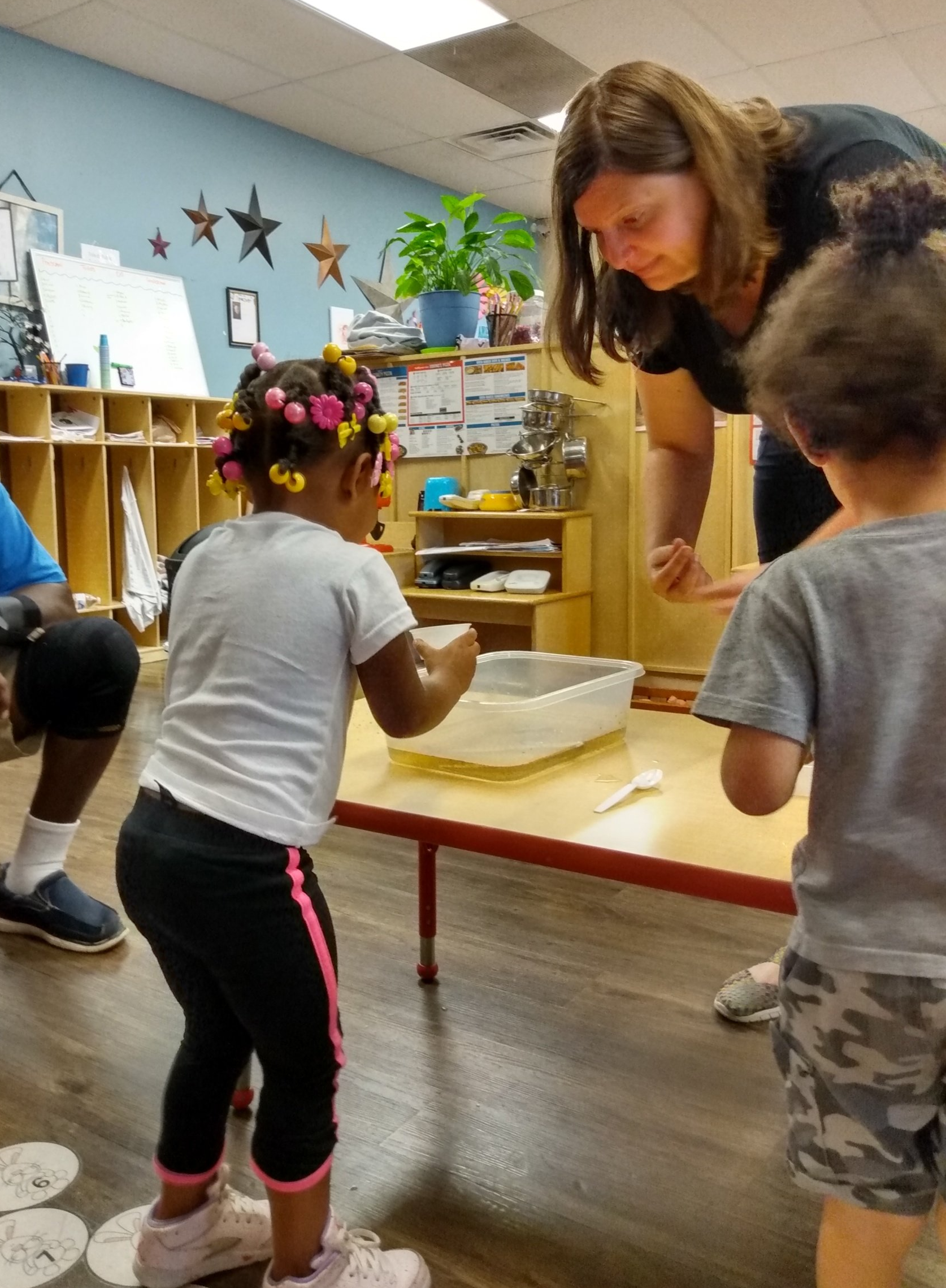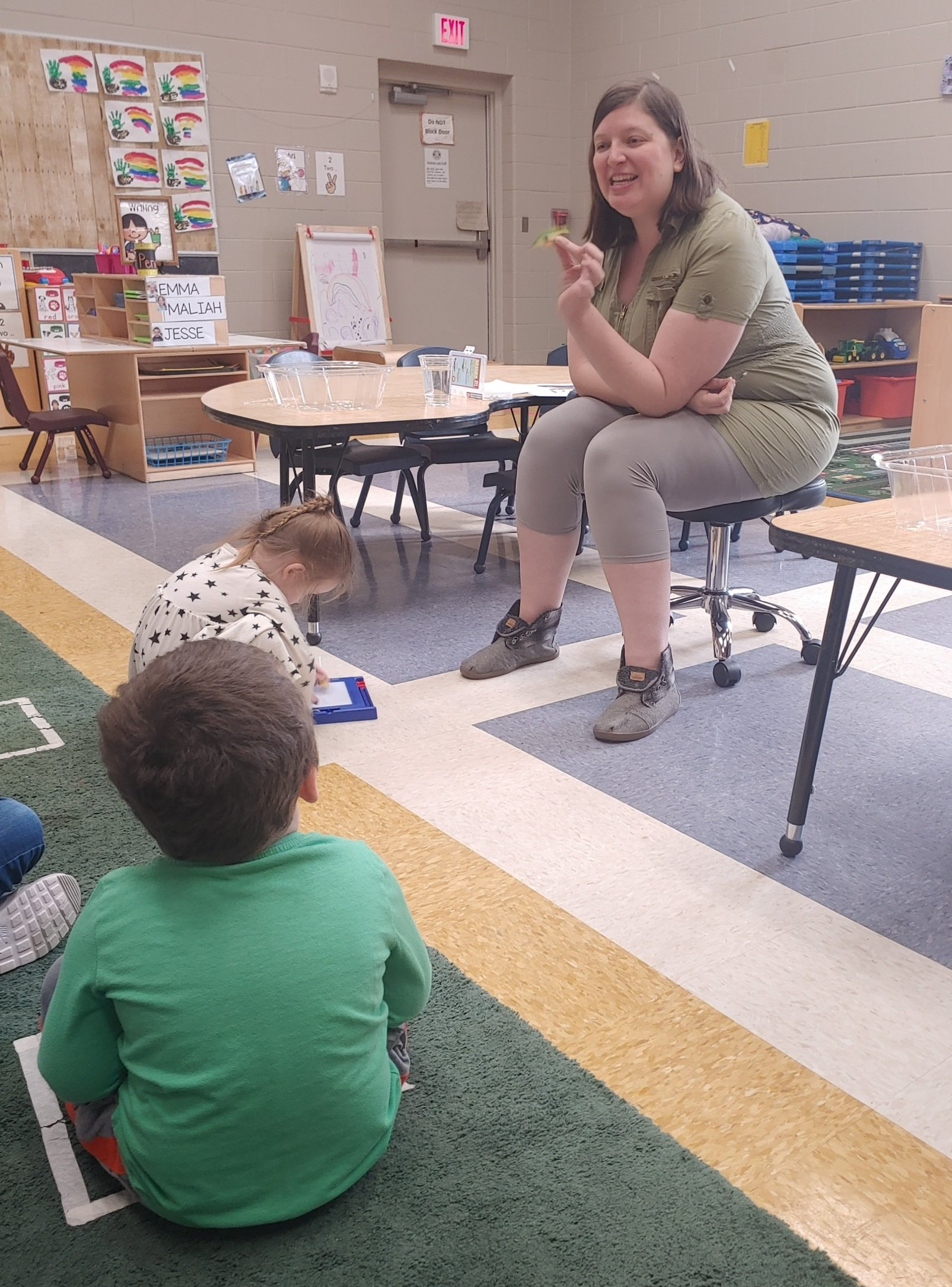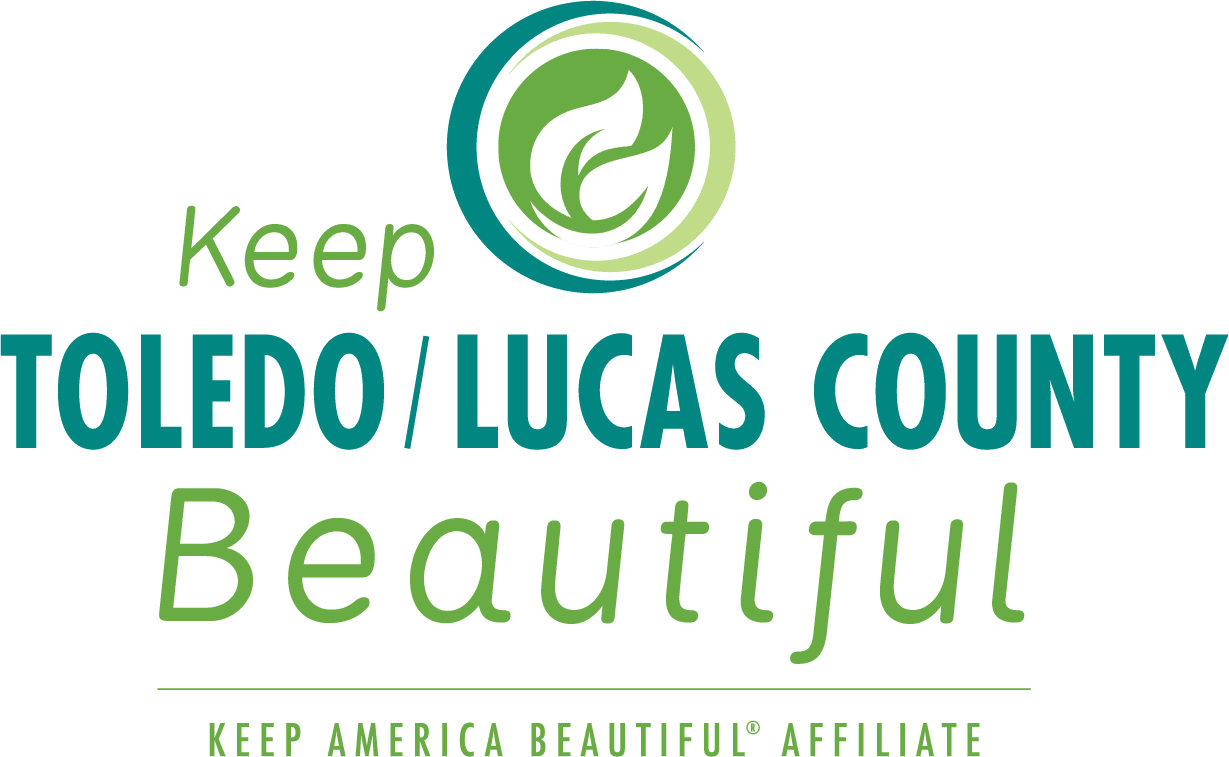Education
Youth Education
Youth Education
Keep Toledo/Lucas County Beautiful offers free youth education programming to classrooms, youth clubs, day camps, afterschool programs, community groups, and more! Educational services are available to all age groups: elementary, middle, and high school aged students. Programming is designed with learning standards in mind and is tailored to your group's needs in the form of workshops, presentations, lessons, & more.
Please review the programming we are currently offering youth groups below. Contact us for more information by using the request form below or by contacting our Community Education Specialist at
education@ktlcb.org or 419-213-2252.


YOUTH EDUCATION PROGRAMMING
Learn more about our PreK, elementary, middle school, and high school environmental education programs.
Preschool
Recycling Symbol (PreK)
Students learn that there are two places we can put our waste - trash and recycling through a story. Students learn about the recycling symbol and look for this symbol on familiar items of waste. Students end by playing a sorting game between trash and recycling. Available for PreK students, lesson is 30 minutes in length.
Fred the Fish: A Water Pollution Tale (PreK-4th grade)
In this place-based education program, students engage in hands-on storytelling as they follow the story of Fred the Fish to learn about the sources of pollution in the Maumee River. Students work in groups to simulate the pollution and learn what they can do to help protect our river. Available for PreK - 4th grade students, lesson is 45 minutes in length.
Kindergarten - 5th Grade
Riley's Adventure Puppet Show (Large assembly, K-3rd grade)
Sing along with our puppet show that follows Riley as he learns about the three re-ways: reduce, reuse, and recycle. Learn more about Riley's Adventure Puppet Show! Available for K - 3rd grade, puppet show is 30 minutes in length.
Fred the Fish: A Water Pollution Tale (PreK-4th grade)
In this place-based education program, students engage in hands-on storytelling as they follow the story of Fred the Fish to learn about the sources of pollution in the Maumee River. Students work in groups to simulate the pollution and learn what they can do to help protect our river.
Available for PreK - 4th grade students, lesson is 45 minutes in length.
View learning standards.
In Its Place: Waste Sorting (K-5th grade)
Students learn about the different options available for disposing of waste and learn how to correctly recycle. Students work in groups to correctly sort a bag of waste. Grade-level appropriate worksheets include number writing & picture or bar graphs. A relay game extension can be added if desired and there is available space.
Available for K - 5th grade students, lesson is 45 minutes in length.
View learning standards.
Do the Rot Thing: Composting (K-8th grade)
Students learn the ingredients of compost, why composting is important, and the role of decomposers in compost. Students work in groups to create compost in a plastic bottle to observe the breaking down of organic materials.
Available for K - 8th grade students, lesson is 30 minutes in length.
View learning standards.
Why Trees Matter: Papermaking (2nd-8th grade)
Students learn the importance of trees and how they impact the environment. Students then simulate a recycling facility and take old paper, make it into paper pulp, and then press it into new paper.
Available for 2nd - 8th grade students, lesson is 1 hour in length.
View learning standards.
Don't Waste Lunch: Pack to Reuse (2nd-8th grade)
Students learn the 3Rs and this lesson focuses on reusable options. Students work in groups to evaluate a packed school lunch. Younger students are given two options and choose which is the most sustainable. Older students brainstorm alternatives to the example lunch packed full of single-use items. Students are then encouraged to make a plan to determine how they will reduce their amount of waste in lunches in the future.
Available for 2nd - 8th grade students, lesson is 30 minutes in length.
View learning standards.
Recycling Resources: Natural Resources (3rd-8th grade)
Students learn about the natural resources used to make a variety of materials and learn how to distinguish between renewable and nonrenewable resources. Students also learn how to correctly recycle, why it's important, and how it ties into climate change. Students work in groups to create zines that tell the story of the natural resources.
Available for 3rd - 8th grade students, lesson is 45 minutes in length.
View learning standards.
6th - 8th Grade
Recycling Resources: Natural Resources (3rd-8th grade)
Students learn about the natural resources used to make a variety of materials and learn how to distinguish between renewable and nonrenewable resources. Students also learn how to correctly recycle, why it's important, and how it ties into climate change. Students work in groups to create zines that tell the story of the natural resources.
Available for 3rd - 8th grade students, lesson is 45 minutes in length.
View learning standards.
MRF In Action (6th-8th grade)
In this hands-on STEM-focused lesson, students will learn how a Materials Recovery Facility (MRF) sorts our recyclables. Students will rotate around stations learning how materials are weighed and sorted by size, gravity, magnetics, eddy currents, and optical lasers. Students will also learn about contamination and the problems it makes for our recycling stream.
Available for 6th - 8th grade students, lesson is 1 hour in length.
View learning standards.
Working with Trash Presentation (6th-12th grade)
Students learn how to correctly recycle in Lucas County and learn about a variety of jobs that exist in the Environmental Science field.
Available for 7th - 12th grade students, lesson is 45 minutes in length.
View learning standards.
Do the Rot Thing: Composting (K-8th grade)
Students learn the ingredients of compost, why composting is important, and the role of decomposers in compost. Students work in groups to create compost in a plastic bottle to observe the breaking down of organic materials.
Available for K - 8th grade students, lesson is 30 minutes in length.
View learning standards.
Why Trees Matter: Papermaking (2nd-8th grade)
Students learn the importance of trees and how they impact the environment. Students then simulate a recycling facility and take old paper, make it into paper pulp, and then press it into new paper.
Available for 2nd - 8th grade students, lesson is 1 hour in length.
View learning standards.
Don't Waste Lunch: Pack to Reuse (2nd-8th grade)
Students learn the 3Rs and this lesson focuses on reusable options. Students work in groups to evaluate a packed school lunch. Younger students are given two options and choose which is the most sustainable. Older students brainstorm alternatives to the example lunch packed full of single-use items. Students are then encouraged to make a plan to determine how they will reduce their amount of waste in lunches in the future.
Available for 2nd - 8th grade students, lesson is 30 minutes in length.
View learning standards.
9th - 12th Grade
Working with Trash Presentation (6th-12th grade)
Students learn how to correctly recycle in Lucas County and learn about a variety of jobs that exist in the Environmental Science field.
Available for 7th - 12th grade students, lesson is 45 minutes in length.
Correct Recycling Workshop (9th-12th grade)
Confused about what is recyclable? Interested in learning ways to improve your recycling habits? Curious about how the recycling industry is doing locally and nationally? We can help! Get all your questions answered by Keep Toledo/Lucas County Beautiful in this presentation on how to recycle correctly here in Lucas County.
Available for 9th - 12th grade students, lesson is 45 minutes in length.
Living More Sustainably (9th-12th grade)
What can we do to protect our planet and live more sustainably? What actions will have the most impact on climate change? Join Keep Toledo/Lucas County Beautiful for a discussion about practical, everyday things we can all do to help protect people and the planet.
Available for 9th - 12th grade students, lesson is 45 minutes in length.

